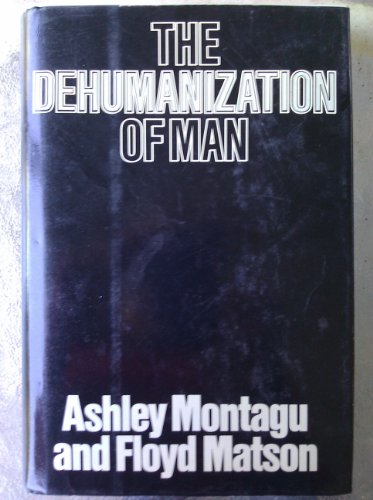 The Dehumanization of Man by Ashley Montagu and Floyd Matson, 220 pages
The Dehumanization of Man by Ashley Montagu and Floyd Matson, 220 pages
It is the argument of social scientists Montagu and Matson that the progress of the twentieth century saw an increasing threat of the reduction of human beings to machines through applied technique. In their view, under the pressure of modernity the self shriveled into variations of the "Malevolent Robot" epitomized by Adolf Eichmann and the "Cheerful Robot" best represented by Hugh Hefner - the killing machine and the copulating machine. The slide into anti-humanism was greased by the amateur pornography of Masters and Johnson, which clinicized sex, and the shift of the American economy from mass production to mass persuasion.
The Dehumanization of Man was published in 1983, and it is when the authors survey then-contemporary culture that the book both shifts into high gear and runs into problems. Their rapid-fire evocation of the pop culture of the '60s and '70s is at times thrilling, at times dizzying. Unfortunately, the authors are not immune to the occasional misstep which suggests that they are not, in fact, really that familiar with the material, as when they lump George Romero in among horror directors whose films "lack social concern" or suggest that intelligent women are more likely to be killed in slasher films (Laurie Strode disagrees).
It is also in this section that the book threatens to become a sensationalistic catalog of cultural outrages. Obviously, this firmly dates the book, although consideration of how certain trends highlighted here have continued or fizzled in the subsequent decades is certainly worthwhile. It may be difficult to see a picture of Alice Cooper on a golf course and consider him a symptom of dehumanization, but perhaps the damage is invisible because it has already been done. It is similarly easy to dismiss as irrelevant Bernardine Dohrn's "terrorist chic" celebration of the Manson murders, until it is remembered that one of the world's most powerful corporations, Google, recently celebrated Yori Kochiyama, who idolizes Osama bin Laden.
No comments:
Post a Comment